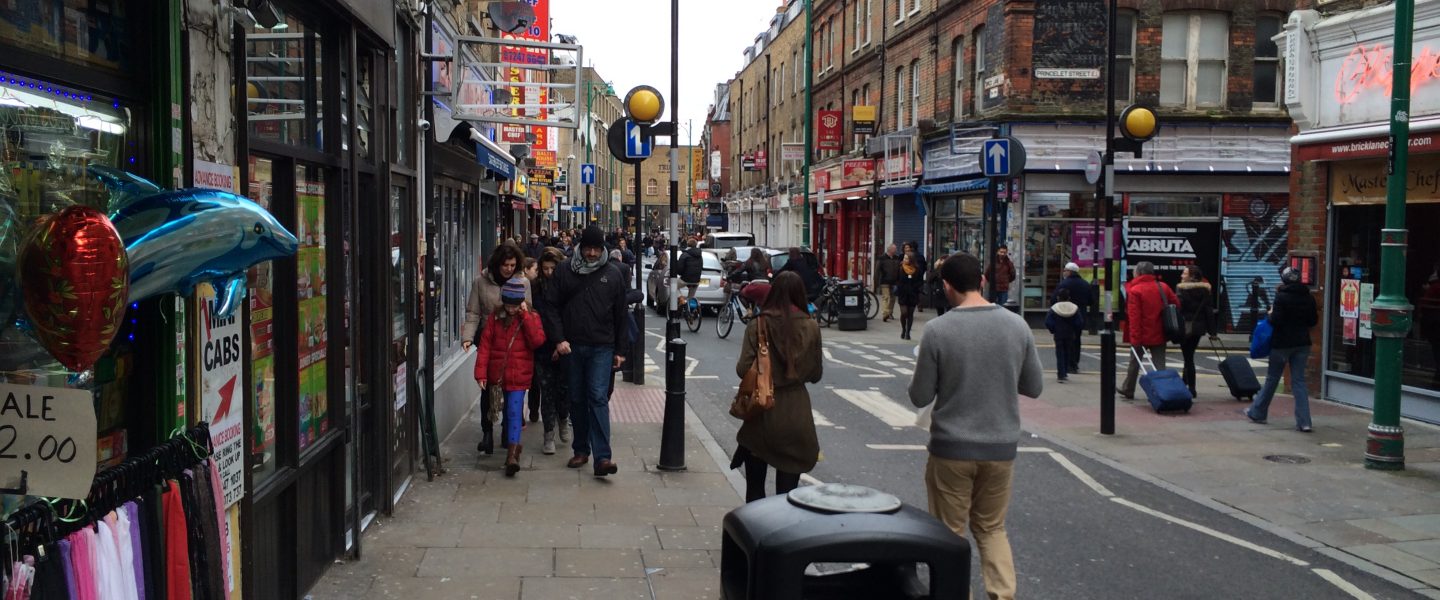
EKA Big Auditorium A101
Start Date:
21.12.2018
Start Time:
16:00
End Date:
21.12.2018
Inclusive City and Street Commerce: the Hidden Structure of Retail Location Patterns and Vibrant Sidewalks – Lectures by Lily Song & Andres Sevtsuk
Lily Song (Lecturer in Urban Planning and Design and Senior Research Associate at the Harvard University Graduate School of Design) and Andres Sevtsuk (Assistant Professor of Urban Planning at the Harvard Graduate School of Design) and will give lectures on Friday, 21st of December at 4 pm in the mail hall of Estonian Academy of Arts, looking into Tallinn’s challenges and opportunities in exploring urban planning and policy interventions that promote sociospatial equity and inclusion and how “good” street commerce is part and parcel of building inclusive, diverse, and vital local economies. Both lectures open for architecture students from across Estonia as well as field professionals, city officials, and general public interested in the future of Tallinn urban centre. The lectures will be in English.
***Lily Song. Inclusive City***
Amidst growing income and wealth inequality in many countries, the urban and spatial dimensions of this issue remain less investigated and understood. This talk will consider Tallinn’s challenges and opportunities in exploring urban planning and policy interventions that promote sociospatial equity and inclusion.
Lily Song is a Lecturer in Urban Planning and Design and Senior Research Associate with the Transforming Urban Transport-Role of Political Leadership (TUT-POL) project at the Harvard University Graduate School of Design.Her research focuses on the relations between urban sustainability and livability initiatives, sociospatial inequality, and race and class politics in American cities and other postcolonial contexts. Her projects— which topically span building energy retrofits, sustainable urban transport, and informal street vending among others— are motivated by the common question of how historically marginalized and disenfranchised urban inhabitants and communities can drive transformative urban policy and governance in collaboration with differently situated and abled partners. She holds a PhD in Urban and Regional Planning from MIT, where her dissertation, entitled “Race and Place: Green Collar Jobs and the Movement for Economic Democracy in Los Angeles and Cleveland,” focused on the analysis of two community-based green economic and workforce development projects aiming to build shared wealth and stabilize poor, inner city neighborhoods. The research partly explored how progressive urban coalitions might use race as a diagnostic and dialogic tool in undertaking transformative economic programs towards realization of the “just city.”
***Andres Sevtsuk. Street Commerce: the Hidden Structure of Retail Location Patterns and Vibrant Sidewalks***
“Good” street commerce is part and parcel of building inclusive, diverse, and vital local economies, convivial neighborhoods, and sustainable built environments. However, cities and communities will only realize such gains and benefits if they proactively plan and regulate street commerce.
Andres Sevtsuk is an Assistant Professor of Urban Planning at the Harvard Graduate School of Design. His research interests include urban design and spatial analysis, modeling and visualization, urban and real estate economics, transit and pedestrian oriented development, spatial adaptability and urban history. Andres has worked with a number of city governments, international organizations, planning practices and developers on urban designs, plans and policies in both developed and rapidly developing urban environments, most recently including those in Indonesia and Singapore. He is the author of the Urban Network Analysis toolbox, which is used by researchers and practitioners around the world to study spatial relationships in cities along networks. He has led various international research projects; exhibited his research at TEDx, the World Cities Summit and the Venice Biennale; and received the President’s Design Award in Singapore, International Buckminster Fuller Prize and Ron Brown/Fulbright Fellowship. He was previously an Assistant Professor of Architecture and Planning at the Singapore University of technology and Design (SUTD), and a lecturer at MIT.
“Unfinished City” is a three-year large-scale research project conducted by the Estonian Academy of Arts Faculty of Architecture in cooperation with the City of Tallinn. The research project asks what could be a good and livable city in the 21st century and how this could be reflected in the urban development of Tallinn. The project focuses on exploring Tallinn’s urban design visions and spatial future scenarios. The research will be carried out thanks to the support from Kapitel.
Additional information: https://www.artun.ee/en/curricula/architecture-and-urban-design/unfinished-city/
